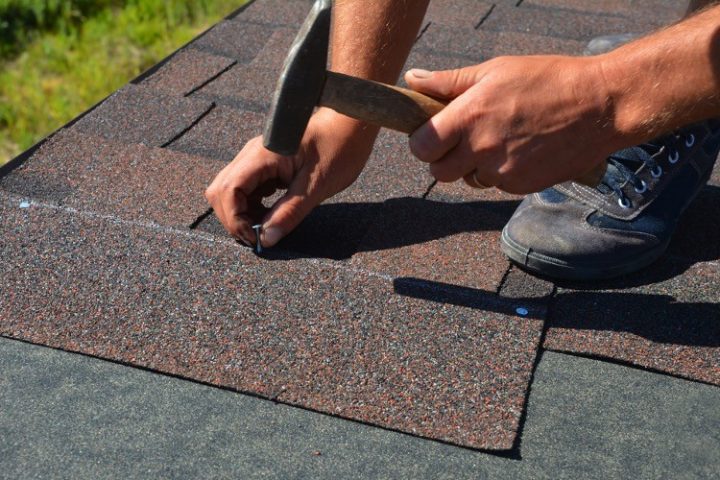
Texas roofer Terence Duque found out the hard way that the only people who can help those in need is those people the government approves of.
Here’s the story of one man’s earnest and charitable desire to help people suffering from the violence of Hurricane Ian and the government’s effort to perpetuate its power and keep the homes and happiness of everyone under its monopolistic control, regardless of legitimate need or loving neighbor.
Here’s a summary of the government’s stiff-arming of Duque and his plan to provide roofs for the people of Charlotte County, Florida, as reported by Reason magazine online:
Duque has run a successful Texas-based commercial and residential roofing business since 2008. He’s got an A-plus rating from the Better Business Bureau and has been named a “preferred contractor” by national roofing supply company Owens Corning. And in the wake of Ian, there’s an obvious need for roofers and other contractors in Florida, as cleaning up and repairing the storm’s damage will take months, if not years. Duque thought he could help by offering his services to homeowners with damaged roofs in Charlotte County, near where the brunt of the storm hit.
The county’s response: “Get him.”
Duque was arrested for “conducting business in Charlotte County without a Florida license,” the Charlotte County Sheriff’s Office announced on Friday. If charged as a felony, that’s an offense that could carry up to five years in prison under Florida law — although it’s possible that Duque could be charged with only a misdemeanor offense that carries a mere one year of jail time.
The Charlotte County Sheriff’s Office insists that they arrested Duque because he was spotted by an investigator with the Florida Department of Business and Professional Regulation (DBPR) repairing roofs without permission. The horror! The audacity!
The unnamed investigator notified the Charlotte County Economic Crimes Unit (could anything sound any more Stalin-era Soviet that that?) and that agency notified the sheriff and the “threat” posed by Duque and his unlicensed charity was squelched.
Here’s how Duque’s dangerous roofing was stopped by law enforcement, according to Reason:
When a detective with the sheriff’s office tracked down Duque, the roofer reportedly said he believed he was allowed to work in Florida due to Gov. Ron DeSantis’ emergency order that loosened licensing rules in the aftermath of the storm. “The investigator informed Terence that this was not the case, and that Terence would be placed under arrest, as he had already done work in violation of the statute,” according to the Charlotte County Sheriff’s Office.
Not surprisingly, the DBPR believes it is the good guy in this story. The “protection” of people needing roofs from getting those roofs quickly from skilled, but unlicensed, roofers is undoubtedly something the bureaucrats in that agency would count as a feather in their contractor-controlling caps!
Justin Pearson, managing attorney for the Florida office of the Institute for Justice, a firm described by Reason as a “libertarian law firm,” accurately assesses the inanity inherent in such overzealous policing of occupational licensing: “When safe, successful businesses come to Florida in the aftermath of a hurricane to provide much-needed assistance, the last thing DBPR should want is for the workers to be arrested and charged with a felony. DBPR is punishing people for doing the right thing.”
According to Pearson, only 18 states in the union recognize universal licensing — that is to say, the recognition in one state of an occupational license issued in another state — and Florida is not one of those states.
That’s good news for the bureaucrats controlling who can and cannot conduct certain types of work in Florida, but bad news for people who could use a roof, regardless of an apparatchik’s application of roofer regulations.
Florida is one of 32 states where such scenarios are played out after any natural disaster. Across the country, state and local governments are placing impossibly high hurdles in the path of entrepreneurship, preventing many people from earning a living. Everywhere, it seems that anyone who would hang out a shingle or take a job providing a service has to obtain permission from government, paying sometimes thousands of dollars and taking hundreds of hours of training, placing such employment beyond the reach of those who often are most in need of a job.
Ultimately, requiring a license to do anything converts an act that was once a right into a privilege, a privilege to be granted and revoked by rulers according to their whim.
Occupational licensure is an example of this transformation, and it artificially inflates prices, prevents people from practicing the livelihood of their choice, and exchanges genuine capitalism for crony capitalism and all the corruption with which that institution is concomitant.
According to a study conducted in 2010 by S. David Young, “at least a fifth, and perhaps as much as a third, of the work force is directly affected by licensing laws” in the United States.
An article published by the Ludwig von Mises Institute reveals what may be the reason for the regulations and their popularity among those already licensed:
Studies have shown, for example, that more-difficult requirements to earn a dental license (in the form of the pass rate of the required exam) do not lead to improved dental outcomes of patients but do result in higher prices of basic dental services, likely because the requirements result in fewer dentists. Similarly, more-stringent licensing of mortgage brokers has no influence on the number of foreclosures, but does lead to higher prices of mortgages, again likely due to fewer providers of the service.
Other studies have found that occupational licensing improves the employment prospects of licensed workers and can raise their wages by as much as 15 percent and enhance other benefits such as health coverage and pensions. These benefits are similar to those of unions.
In other words, the requirement of an occupational license does not improve the quality of the regulated service, but it does allow the licensed service providers to charge more for their services than an unlicensed provider.
As was evident in the case of Terence Duque in Florida, the economic effect is that those who could provide a service but who cannot afford or otherwise qualify for the license are prevented from providing for themselves and their families — or for other families in dire need — regardless of their skill or the willingness of customers to hire them.
Let’s let Adam Smith have the last word on this issue. He writes in The Wealth of Nations, “The property which every man has in his own labour, as it is the original foundation of all other property, so it is the most sacred and inviolable. The patrimony of a poor man lies in the strength and dexterity of his hands; and to hinder him from employing this strength and dexterity of his hands; and to hinder him from employing this strength and dexterity in what manner he thinks proper without injury to his neighbor is a plain violation of this most sacred property.”



